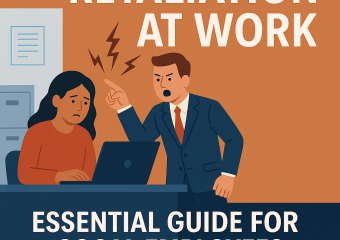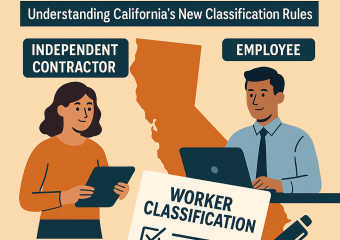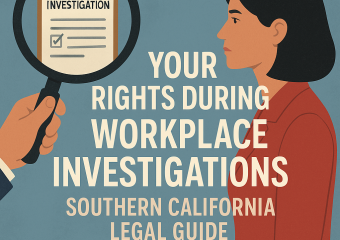California Labor Code Violations: Is Your Employer Breaking the Law?
California labor laws are among the most comprehensive and protective in the United States. Designed to safeguard employee rights, they cover a wide range of workplace issues, from wages and hours to workplace safety and discrimination. However, despite these protections, many employees find themselves facing labor code violations without even realizing it. Understanding these violations is crucial for employees to ensure they are being treated fairly and legally within the workplace.
What Are California Labor Code Violations?
California labor code violations occur when an employer fails to comply with the rules and regulations set forth in the California Labor Code. This code governs almost every aspect of employment, including wage payment, overtime, meal and rest breaks, workplace safety, harassment policies, and employee termination rights.
Some common violations include:
- Failure to pay minimum wage or overtime
- Unlawful deductions from employee wages
- Not providing meal or rest breaks
- Misclassifying employees as independent contractors
- Failure to provide proper wage statements
- Retaliation against employees for reporting violations
These breaches can significantly impact an employee’s livelihood, making it essential to recognize when the law is being violated.
Common California Labor Code Violations to Watch For
Wage and Hour Violations
California has strict rules for wage and hour laws, including a minimum wage that often exceeds the federal minimum. Employers must pay overtime for hours worked beyond eight in a day or forty in a week. Many violations stem from employers miscalculating hours, failing to pay overtime, or improperly classifying workers to avoid overtime pay.
Meal and Rest Break Violations
Under California law, employees are entitled to a 30-minute meal break if they work more than five hours in a day, and a second meal break if they work more than 10 hours. Additionally, employees must receive a 10-minute rest break for every four hours worked. Employers who fail to provide these breaks are not just breaking the law—they may owe penalty wages for non-compliance.
Misclassification of Employees
Some employers try to circumvent labor laws by misclassifying employees as independent contractors. This misclassification denies workers benefits such as overtime, workers’ compensation, and unemployment insurance. California’s strict “ABC” test clarifies who qualifies as an independent contractor, and many companies find themselves penalized for misclassification.
How to Determine If Your Employer Is Breaking the Law
Recognizing labor code violations can be challenging, especially if you’re unfamiliar with employment law. Here are some steps to help you assess your situation:
- Review Your Pay Stubs and Time Sheets: Make sure your hours worked and pay rates match what you were promised. Keep an eye out for deductions that seem unusual or unauthorized.
- Know Your Break Rights: Track your meal and rest breaks. If you’re routinely missing these breaks or required to work through them, it’s a red flag.
- Understand Your Classification: If you believe you are wrongly classified, review the nature of your job and payment structure in relation to California’s rules.
- Seek Information on Termination and Harassment Policies: Employers must follow strict guidelines on termination and workplace treatment. Illegal retaliation or harassment is also a serious violation.
What to Do If You Suspect California Labor Code Violations
If you think your employer might be violating California labor laws, taking action is essential to protect your rights and ensure fair treatment.
Document Everything
Keep detailed records of your hours worked, pay received, communications with your employer, and any missed breaks or unfair treatment. Documentation provides critical evidence if you decide to file a complaint.
Contact the Labor Commissioner’s Office
The California Division of Labor Standards Enforcement (DLSE) is responsible for enforcing labor laws. You can file a wage claim or complaint with the Labor Commissioner’s Office, which investigates violations and can order restitution or penalties against the employer.
Consult an Employment Attorney
If your situation is complex, or your employer retaliates against you, consider consulting a labor law attorney. Legal professionals can provide advice tailored to your case and assist with lawsuits or settlement negotiations.
Why It Matters
Violations of the California Labor Code don’t just mean lost wages or unfair conditions—they undermine the fundamental trust between employers and employees. Upholding these laws ensures a fair, safe, and respectful workplace, which benefits not only individuals but the broader economy.
Employees who know their rights and can identify when those rights are being infringed upon are better equipped to advocate for themselves and promote positive changes in their workplaces.
Maintaining awareness about California labor code violations empowers workers to recognize when their employer may be breaking the law. Whether it’s unpaid overtime, missed meal breaks, or improper classification, understanding these issues can help you take timely action and protect your hard-earned rights. If you’re unsure about your situation, don’t hesitate to seek help—your employment protections are there for a reason.




